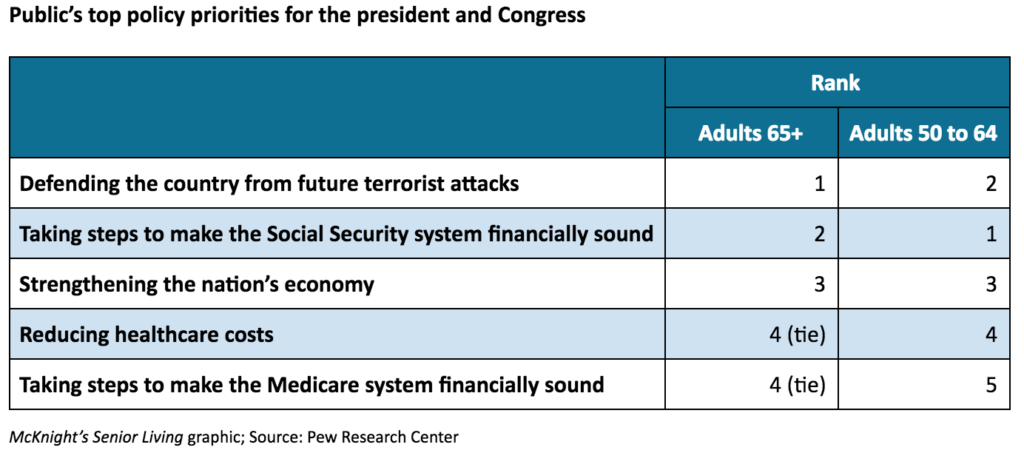We’ve heard older voters called “healthcare voters,” meaning healthcare is their top concern and one by which they gauge politicians’ electability. It would seem to make sense, with older adults at or near retirement and the age at which they would be confronting more healthcare issues and depending on Medicare.
Results of a new poll by the Pew Research Center, however, certainly don’t corroborate that view.
When asked what the top priorities for the president and Congress should be, tops for respondents aged 65 or more years was “defending the country from future terrorist attacks.”
Healthcare didn’t even place in the top three concerns. It was No. 4, which saw a tie between “reducing healthcare costs” and “taking steps to make the Medicare system financially sound.”
No. 2 and 3, respectively, were “taking steps to make the Social Security system financially sound” and “strengthening the nation’s economy” — also understandable concerns considering the importance of Social Security and the economy to retirees’ livelihoods.
Healthcare wasn’t a greater priority for those aged 50 to 64, either. Reducing overall healthcare costs ranked No. 4, and shoring up Medicare came in fifth.
Tops for the younger baby boomers and the oldest members of Generation X were Social Security, homeland security and strengthening the economy — the same top three priorities as those aged 65 or more, although No. 1 and 2 were flipped.
Pew conducted the telephone survey Jan. 9 to 14 among a total of 1,505 adults aged 18 or more years. Overall, the top priority for respondents of all ages was strengthening the economy. That was the top priority for men of all ages taking part in the survey, too, whereas the top priority for women was improving the educational system. Among college graduates of all ages, the top priority was reducing healthcare costs.
But don’t call older adults healthcare voters, at least not based on the results of this survey.




